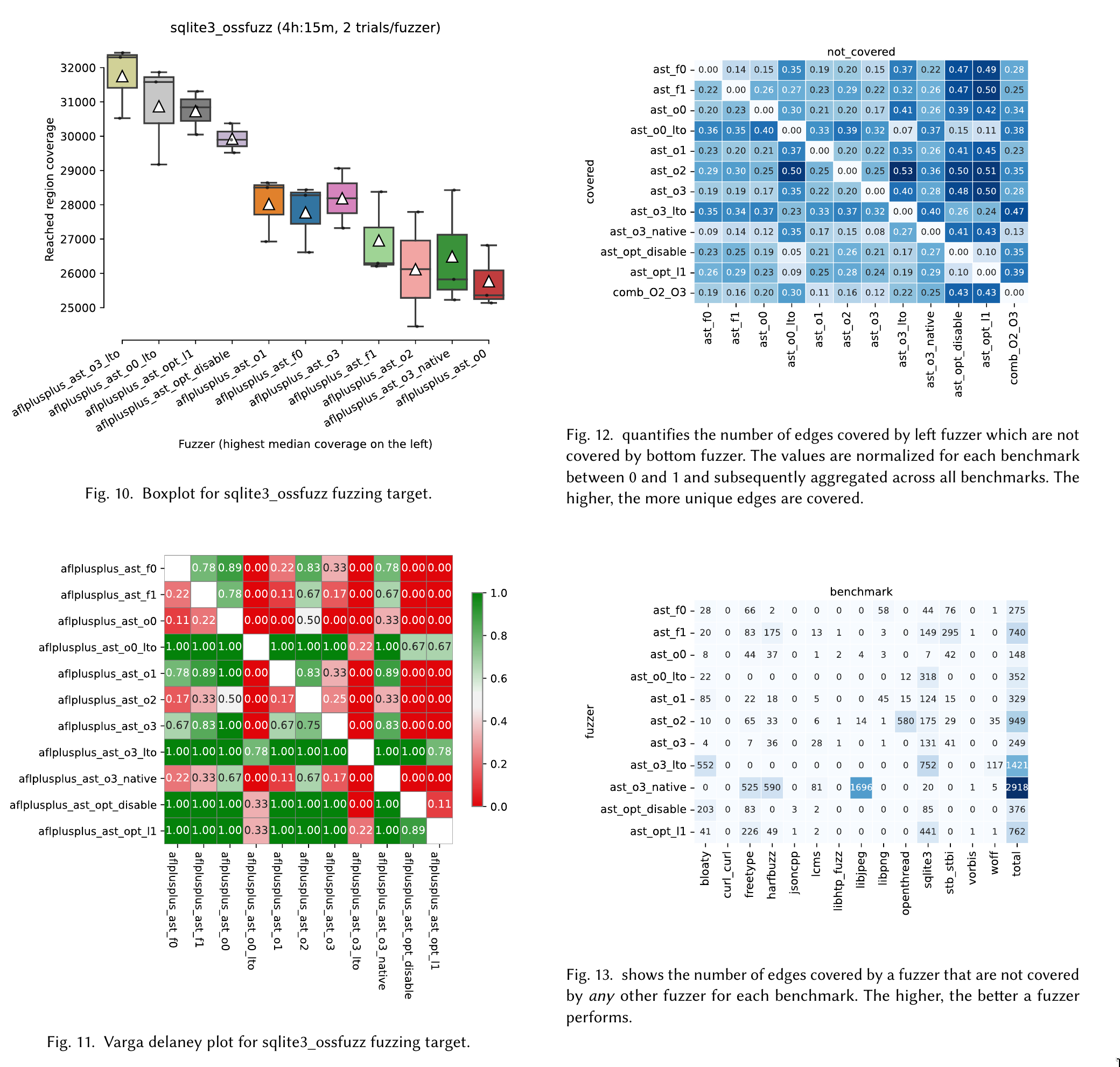Evaluating the Influence of Compiler Flags on Fuzzing
Abstract
The automated software testing technique fuzzing has seen a golden age in the last decade, with widespread use in industry and academia. On the hunt to find vulnerabilities, fuzzing binaries are compiled with default compiler optimizations such as -O2, or -O3, which remain the hard-coded default in popular fuzzers such as AFL++. On a binary level, software compiled from the same source code may vastly differ in control flow depending on used compilation flags. In this work, we aim to analyze the impact of different compiler optimizations on the fuzzing process and provide further insight. We influence compilation passes of the clang/LLVM compiler and analyze their impact on the fuzzing performance of AFL++. We integrate our work into Fuzzbench, an open-source fuzzing pipeline, and run experiments on real-world benchmarks. Our preliminary fuzzing results indicate that there is a delicate trade-off between runtime performance and code complexity. While our results show significant differences on the scale of individual benchmarks, when summarizing across the whole bench suite, there is no evidence to suggest a statistical difference in fuzzing performance.
Report: 22-06-11_ast_influence_compilerflags_fuzzing.pdf
Collaboration with Matthew Weingarten as part of semester project in Automated Software Testing, in Advanced Software Technologies group at ETH Zurich.
Spring 2022, https://ast.ethz.ch/

